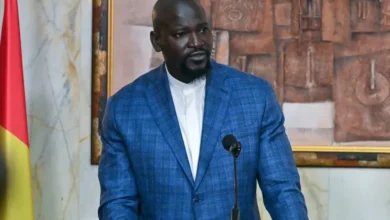Democrats, next time try fighting for the working class

A week before the election, my dad was visiting and talked to me about his gut feeling that former President Donald Trump might win. He was clear about his choice to vote for Vice President Kamala Harris. “But what are they doing?” he asked me, exasperated.
“They need to level with people about the economy,” he continued. “I know so many people who can’t afford a place to live any more. People do not want to hear, ‘Well, actually the economy is good.’”
Then suddenly he pivoted away from Harris to liberals more generally, and away from the economy into culture.
“You know, another thing: I’m tired of feeling like I’m going to get jumped on for saying something wrong, for using the wrong words,” my dad confided, becoming uncharacteristically emotional. “I don’t want to say things that will offend anyone. I want to be respectful. But I think Trump is reaching a lot of people like me who didn’t learn a special way to talk at college and feel constantly talked down to by people who have.”
At 71 years old, my dad is still working full time, helping to run a delicatessen at a local farmers’ market. He didn’t go to college. Raised Mennonite and socially conservative, he is nonetheless open-minded and curious. When his cousins came out as gay in the 1980s, he accepted them for who they are.
Like me, my father has now voted against Donald Trump three times in the all-important swing state of Pennsylvania. Like me, he was unhappy about all three Democratic nominees he felt obliged to vote for – and deeply disappointed by the party and its leadership.
He doesn’t feel like they give a damn about people like him. I’m disinclined to try to persuade him otherwise. Because it’s clear as day that if Democratic Party leaders could swap the party’s historic base of working-class voters for more affluent voters and still win elections, they would.
This is not hyperbole. This is what they have shown us and told us over and over again – in their policy priorities, messaging choices, and electoral campaigns. They say it out loud. In the summer of 2016, Democratic Senator Chuck Schumer smugly claimed that “for every blue-collar Democrat we lose in western Pennsylvania, we will pick up two moderate Republicans in the suburbs in Philadelphia, and you can repeat that in Ohio and Illinois and Wisconsin.”










